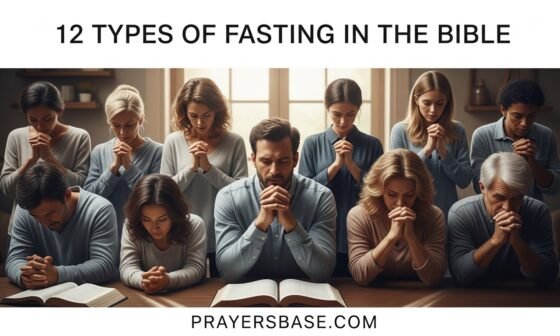Unity is one of the most important values in the Christian faith. Throughout the Bible, we see the call for believers to live in harmony, love each other sincerely, and work together as one body. Yet, in today’s world, division often creeps into our relationships, churches, and communities.
So, what does the Bible really say about unity? How can we apply these teachings to build a stronger faith community?
In this article, we’ll dive deep into Scripture’s wisdom on unity, love, and togetherness, exploring how we can live as one in Christ.
Definition of Unity in the Bible
Unity in the Bible is more than just agreeing or getting along. It’s a deep spiritual bond that connects believers through their faith in Christ. This bond is rooted in love, humility, and a common goal: to glorify God and spread His kingdom.
It’s not about everyone being the same. Instead, it’s about harmony. Different people working together as one body under Christ.
In the Bible, unity is often described as:
- Oneness in Christ – Believers are called to be one, just as Christ and the Father are one (John 17:21).
- A reflection of God’s love – True unity reflects the selfless love of God, where people serve and care for one another (1 Corinthians 13:4-7).
- The foundation of a strong church – A divided church is weak, but a united church is powerful and able to accomplish God’s will (1 Corinthians 1:10).
Unity doesn’t mean no differences. It means love, patience, and a shared commitment to God’s truth. Believers must put aside personal wants, be humble, and focus on God’s mission.
The Biblical Call for Unity
From the Old Testament to the New Testament, God emphasizes the importance of unity among His people. One of the most well-known verses about unity is Psalm 133:1, which says:
“How good and pleasant it is when God’s people live together in unity!”
This verse reminds us that unity is not just important—it’s something that brings joy and blessing. God desires His people to be united, working together in love and peace.
In the New Testament, Jesus also prayed for unity among His followers. In John 17:20-21, He prayed:
“I pray also for those who will believe in me through their message, that all of them may be one, Father, just as you are in me and I am in you.”
This powerful prayer shows us that Jesus deeply desires for His followers to be united, just as He and the Father are one.
Why It Matters: When we live in unity, we reflect the love of Christ and create a strong foundation for our faith community.

Love: The Foundation of Unity
True unity cannot exist without love. The Bible teaches that love is the key to maintaining harmony among believers.
i. Love Covers Differences
In Colossians 3:14, Paul writes:
“And over all these virtues put on love, which binds them all together in perfect unity.”
Love is what holds everything together. Even when people have different opinions, backgrounds, or personalities, love makes unity possible.
ii. Love Is Patient and Kind
1 Corinthians 13:4-7 gives us a beautiful definition of love:
“Love is patient, love is kind. It does not envy, it does not boast, it is not proud… It always protects, always trusts, always hopes, always perseveres.”
When we practice this kind of love in our faith communities, we create an atmosphere where unity can thrive.
Why It Matters: When we love one another as Christ loves us, we break down barriers and strengthen our bond as a faith family.
Unity in the Church: One Body, Many Parts
The church is often described as the Body of Christ, with each believer playing a unique role.
Different Roles, Same Mission
1 Corinthians 12:12-14 says:
“Just as a body, though one, has many parts, but all its many parts form one body, so it is with Christ.”
This means that even though we have different talents, callings, and responsibilities, we are still part of the same body. One part is not more important than another—each person has a role to play in God’s kingdom.
Avoiding Division in the Church
Paul also warned against division in the church. In 1 Corinthians 1:10, he urged believers:
“I appeal to you, brothers and sisters, in the name of our Lord Jesus Christ, that all of you agree with one another in what you say and that there be no divisions among you, but that you be perfectly united in mind and thought.”
Division weakens the church, but unity strengthens it. When we focus on our shared faith rather than our differences, we build a stronger and more effective faith community.
Why It Matters: A united church reflects the love of Christ and becomes a powerful witness to the world.
Overcoming Conflicts in a Faith Community
Conflicts are a natural part of life, even within the church. However, the Bible provides guidance on how to handle disagreements in a way that promotes unity.
1. Seek Reconciliation
Jesus taught the importance of resolving conflicts quickly. In Matthew 5:23-24, He said:
“If you are offering your gift at the altar and there remember that your brother or sister has something against you, leave your gift there… First go and be reconciled to them; then come and offer your gift.”
Reconciliation is more important than religious rituals. Before we worship, we should seek peace with those we have disagreements with.
2. Speak with Kindness and Grace
Ephesians 4:29 teaches us:
“Do not let any unwholesome talk come out of your mouths, but only what is helpful for building others up.”
Words have power. When we speak with kindness, we build unity instead of causing division.
3. Forgive as Christ Forgave You
Forgiveness is essential for unity. Colossians 3:13 says:
“Bear with each other and forgive one another if any of you has a grievance against someone. Forgive as the Lord forgave you.”
Holding onto grudges creates division. Forgiveness, on the other hand, restores unity and brings healing.
Why It Matters: Handling conflicts in a Christlike way helps maintain peace and strengthens relationships within the church.
The Power of Unity in Prayer and Worship
When believers come together in unity, powerful things happen.
The Early Church Prayed Together
In Acts 2:42-47, we read about the early church:
“They devoted themselves to the apostles’ teaching and to fellowship, to the breaking of bread and to prayer… They broke bread in their homes and ate together with glad and sincere hearts.”
Their unity in worship and prayer led to incredible growth and blessings.
Jesus Promised Power in United Prayer
In Matthew 18:19-20, Jesus said:
“If two of you on earth agree about anything they ask for, it will be done for them by my Father in heaven. For where two or three gather in my name, there am I with them.”
When we pray together in unity, God’s presence is with us, and our prayers become even more powerful.
Why It Matters: A united church in prayer and worship experiences God’s power and blessings in greater ways.
Unity as a Witness to the World
One of the most significant reasons to pursue unity is because it reflects Christ to the world.
Jesus Said Unity Proves Our Faith
In John 13:35, Jesus said:
“By this everyone will know that you are my disciples, if you love one another.”
The way we treat each other is a testimony to the world. When outsiders see a church filled with love and unity, they are drawn to Christ.
Division Weakens Our Testimony
When churches are divided, it sends the wrong message to the world. Instead of showing love, division can make Christianity seem unappealing. Paul warned against this in Galatians 5:15:
“If you bite and devour each other, watch out or you will be destroyed by each other.”
Why It Matters: A united church is a powerful witness that attracts people to the love of Christ.
5 Examples of Unity in the Bible
Throughout Scripture, we see powerful examples of unity among God’s people. These stories highlight the strength and blessings that come when believers work together in harmony.

1. The Early Church (Acts 2:42-47)
- The first Christians lived in unity, sharing everything they had, praying together, and supporting one another.
- Because of their unity, the church grew rapidly, and God’s blessings were evident.
“All the believers were together and had everything in common.” (Acts 2:44)
2. The Israelites Rebuilding the Wall (Nehemiah 4:6)
- Under Nehemiah’s leadership, the Israelites united to rebuild the walls of Jerusalem despite opposition.
- Their unity allowed them to accomplish what seemed impossible.
“So we rebuilt the wall till all of it reached half its height, for the people worked with all their heart.”
3. Jesus and His Disciples (John 13:34-35)
- Jesus modeled unity through love and selfless service among His disciples.
- He commanded them to love one another as a sign of their unity.
“By this everyone will know that you are my disciples, if you love one another.”
4. Paul and the Early Church Leaders (Acts 15:1-35)
- The early church leaders came together at the Jerusalem Council to resolve disputes about Gentile believers.
- They demonstrated unity by seeking God’s will and working toward a peaceful resolution.
“It seemed good to the Holy Spirit and to us not to burden you with anything beyond the following requirements…” (Acts 15:28)
5. The Trinity – The Ultimate Example of Unity
- God the Father, Son, and Holy Spirit exist in perfect unity, setting the ultimate example for believers.
- Jesus prayed that His followers would reflect the same unity that He shares with the Father.
Each of these examples teaches us that unity is powerful, necessary, and pleasing to God. When people come together in faith, love, and purpose, they accomplish great things for the kingdom of God.
Conclusion: Striving for Unity in Our Faith Communities
Unity is not always easy, but it is essential for a strong and thriving faith community. The Bible teaches us that love, forgiveness, and humility are the keys to living in harmony with one another.
To build unity in our churches and relationships, we must:
✅ Love one another deeply.
✅ Embrace our unique roles in the Body of Christ.
✅ Handle conflicts with grace and forgiveness.
✅ Pray and worship together.
✅ Show the world the love of Christ through our unity.
When we commit to these principles, we create a faith community that is strong, welcoming, and a reflection of God’s kingdom on earth.
Let’s strive for unity, love, and togetherness—just as Christ desires for us. Amen!







